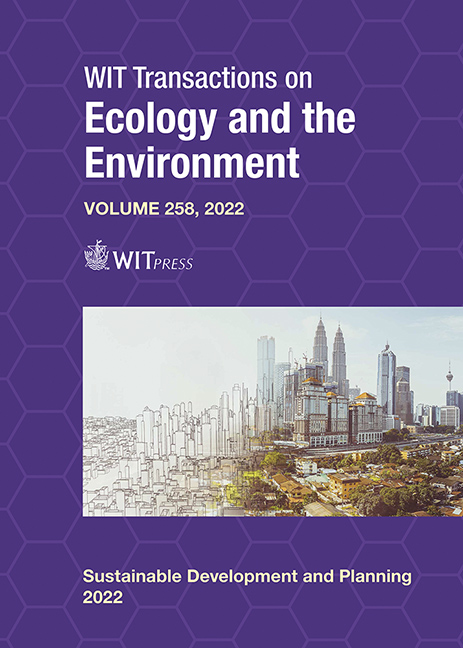SOCIAL CAPITAL IN LOW-INCOME NEIGHBORHOODS IN THE FACE OF FLOODS: CASE STUDIES IN MEXICO CITY, MEXICO
Price
Free (open access)
Transaction
Volume
258
Pages
11
Page Range
53 - 63
Published
2022
Paper DOI
10.2495/SDP220051
Copyright
Author(s)
DANIEL H-LUZ-VEGA, ALEYDA RESÉNDIZ-VÁZQUEZ, EDITH MONTESINOS-PEDRO
Abstract
The purpose of this article is to explain the relationship between social capital and flood risk in low-income neighbourhoods, based on two case studies within Mexico City: Peñón de los Baños in the borough of Venustiano Carranza, and the collective housing units of La Colmena and Ermita Zaragoza in the borough of Iztapalapa. The starting point of this research was that social capital in the face of disasters is the network of relationships established by individuals belonging to a neighbourhood, district, or town, which helps them to carry out preventive and mitigation actions in the face of adverse events such as floods in this case. Methodologically speaking, three forms of social capital were used as categories of analysis: bonding, bridging, and linking, for which questions were posed to key stakeholders through interviews. The case studies are based in low-income neighbourhoods with historical flooding issues; therefore, existing relationships between inhabitants and the way they act in flood prevention and emergency response actions were analysed. The results show the existence of a time–space relation that determines the extent of social capital. In other words, areas with historical flooding problems and areas with a larger territorial extension (Iztapalapa) tend to have greater social capital, whereas areas where severe flooding is more recent and there are fewer affected people (Venustiano Carranza) have a developing social capital. It is concluded that social capital has a direct impact on flood prevention and emergency response actions, and that inhabitant networks with better social capital are better prepared to collectively face any risk of disaster.
Keywords
social capital in the face of disasters, flood risk, low-income neighbourhood, joint actions





